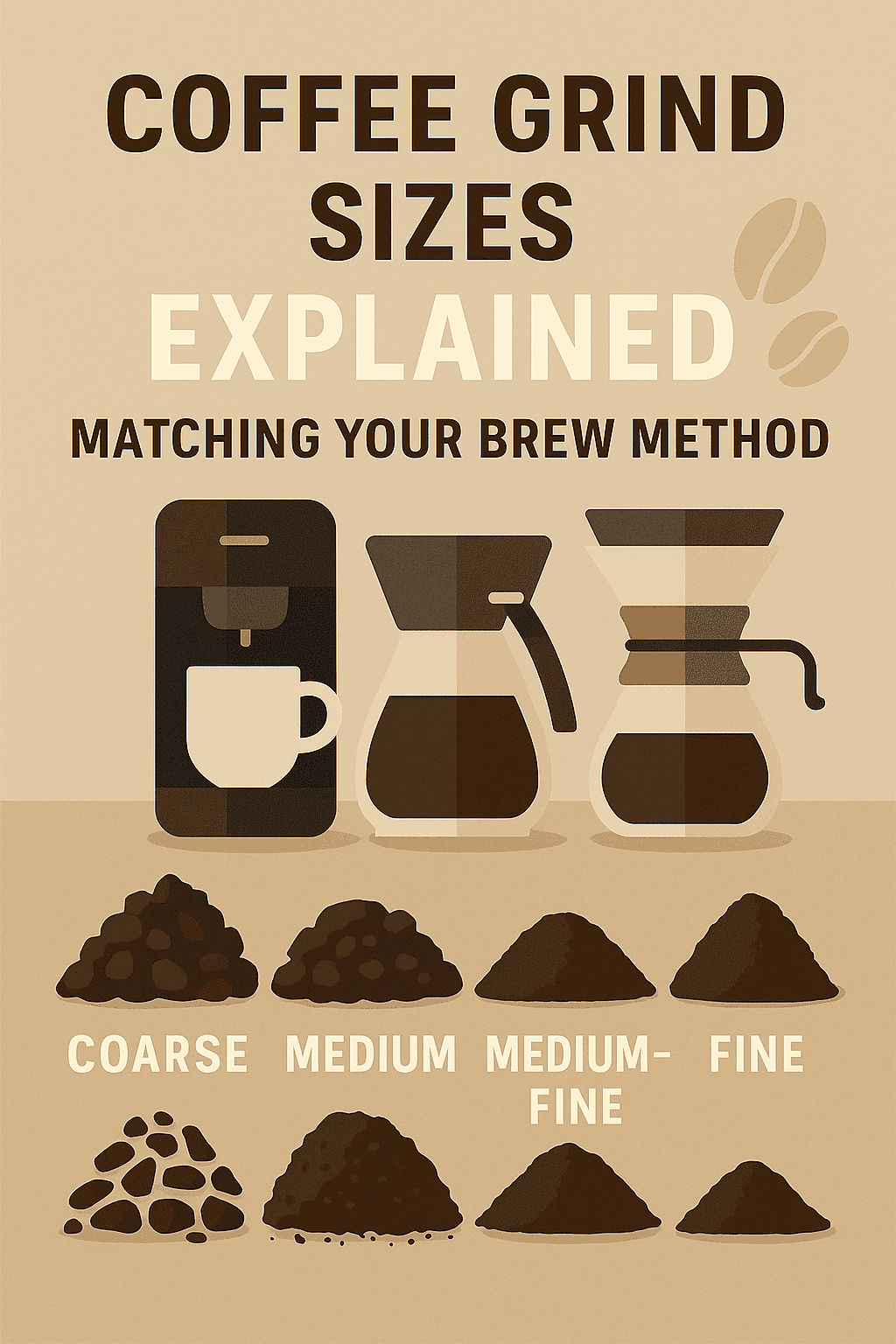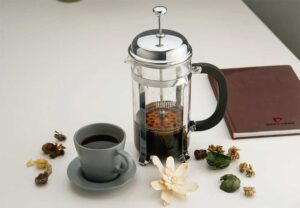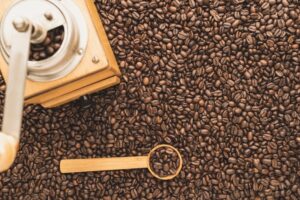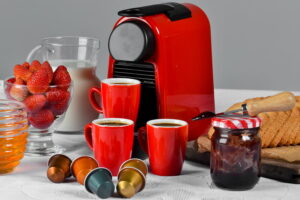From French Press to espresso, every brew method offers a different flavor, texture, and ritual. Whether you crave convenience or craftsmanship, understanding each technique helps you brew your perfect cup. In this guide, we’ll explore the most popular coffee brewing methods, their strengths, and which to try in 2025.
Contents
☕ 1. Drip Coffee Maker
The most common brewer in American homes. It’s simple, automatic, and perfect for multiple cups.
- Best Grind: Medium
- Pros: Easy, consistent, affordable
- Cons: Less flavor control
☕ 2. French Press
Bold, rich, and full-bodied. Coffee grounds steep in hot water, then are pressed through a metal filter.
- Best Grind: Coarse
- Pros: Strong flavor, eco-friendly
- Cons: Can leave sediment
☕ 3. Aeropress
Portable and innovative, the Aeropress uses air pressure to produce espresso-like coffee in under 2 minutes.
- Best Grind: Medium-Fine
- Pros: Fast, smooth taste, travel-friendly
- Cons: Brews 1–2 cups only
☕ 4. Pour-Over (Chemex, Hario V60)
The pour-over method delivers bright, clean coffee by manually pouring hot water over grounds in a filter.
- Best Grind: Medium-Fine
- Pros: Precise flavor control
- Cons: Takes time and patience
☕ 5. Espresso Machine
High pressure extracts concentrated coffee in 25–30 seconds. Espresso is the base for lattes, cappuccinos, and macchiatos.
- Best Grind: Fine
- Pros: Strong, aromatic, versatile
- Cons: Requires learning curve
☕ 6. Cold Brew
Steep coffee grounds in cold water for 12–24 hours to create smooth, low-acid coffee concentrate.
- Best Grind: Extra Coarse
- Pros: Naturally sweet, great for iced coffee
- Cons: Long brew time
☕ 7. Moka Pot
The stovetop espresso maker beloved in Italy. Steam pressure forces water through grounds, making a strong, syrupy coffee.
🎯 Final Thoughts
No single brewing method is “best.” It depends on how you like your coffee and how hands-on you want to be. Experiment until you find your perfect ritual—and don’t forget to adjust your grind size for each method.




